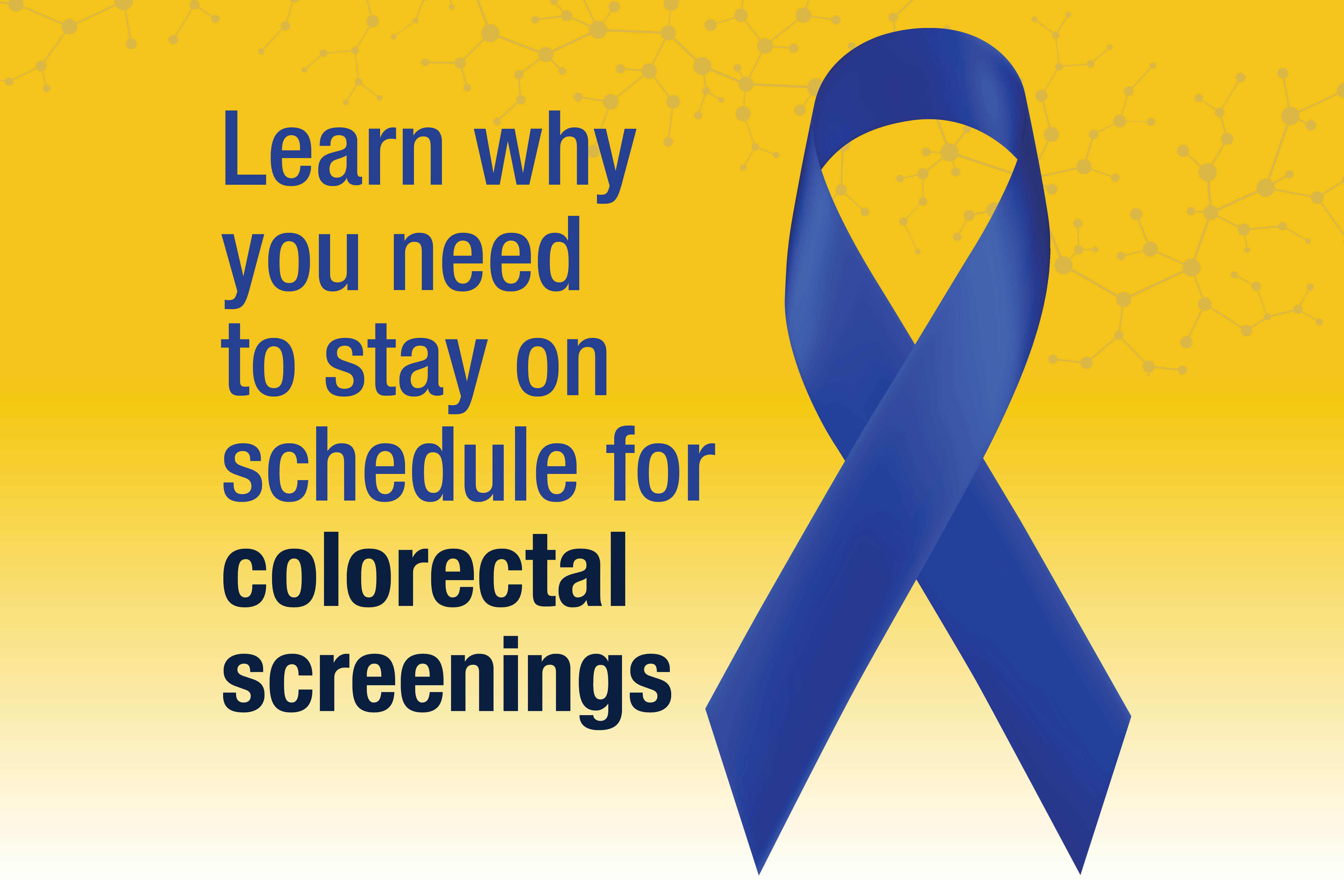
Colorectal cancer is increasingly common among younger people and is the second most common cause of cancer-related death in the United States — even though a variety of options are available for early detection and treatment.
In fact, a recent study found more than one-third of adults were overdue for a screening that could save their lives.
That’s why, as Dr. Thomas H. Riley likes to remind his staff at University of Michigan Health-West’s Gastroenterology Department, “The best screening test is the one that gets done.”
Dr. Riley, service line clinical chief in gastroenterology advanced endoscopy, said it’s important to address any barriers — including awareness — when dealing with one of the most common forms of cancer.
How common? The American Cancer Society predicts 152,810 new cases in the U.S. and more than 53,000 deaths in 2024. Following an unexplained increase in colorectal cancer among younger patients, the recommended age to begin screenings, previously 50, is now 45.
The good news: The colonoscopy, the gold standard for screenings, keeps getting better at detection and treatment — and other options are available.
“I’ll see a patient and sometimes I can’t talk them into a colonoscopy,” Dr. Riley said. “But something’s better than nothing, so I’ll try to talk them into getting an at-home screening kit. And if that’s positive, then we’ll have another discussion.”
As part of the Cancer Network of West Michigan, University of Michigan Health-West is working with its fellow members across the region to raise awareness about the importance of screening.
“We know that early detection is critical to better outcomes for patients with colorectal cancer,” said Dr. Lloyd Geddes Jr., executive director of the Network, formed by Trinity Health and University of Michigan Health-West to deliver a seamless care experience. “Talking about colorectal cancer and the screening options available is an easy win.”
Why colonoscopies are the first choice
During a colonoscopy, a doctor uses a flexible tube equipped with a light and video camera to examine the full length of the rectum and colon. At the same time, the doctor removes any abnormal growths — polyps — detected along the way.
Being an all-in-one procedure — both screening and therapeutic — for most patients is just one of the advantages of a colonoscopy.
Another is that the outpatient procedure keeps improving, with increasingly sophisticated techniques and equipment. High-definition scopes and AI-assisted detection — GI Genius — are used in every colonoscopy procedure room at University of Michigan Health-West.
“The GI Genius is basically a second eye for us as we perform endoscopy,” Dr. Riley said. “The artificial intelligence draws on millions of images and helps us detect polyps.”
These polyps can be as small as 1 or 2 millimeters in size. The equipment is especially good at detecting difficult-to-see flat polyps and adenomas — benign tumors that can become cancerous.
These high-tech tools complement University of Michigan Health-West Gastroenterology’s emphasis on quality of care, Dr. Riley said.
“We have high quality endoscopy, and we monitor quality here,” he said. “We monitor our adenoma detection rate and how many polyps we are picking up, to make sure that our quality is good.”
Another advantage of the colonoscopy: If no problems are detected, most healthy patients without risk factors won’t need another screening for 10 years.
Talk to your doctor
The U.S. Preventive Services Task Force recommends that adults age 45 to 75 be screened for colorectal cancer. However, people at high risk might need to be screened at a younger age.
Additionally, patients should speak to their primary care provider if they notice:
- A change in bowel habits
- Blood in or on your stool
- Diarrhea, constipation, or feeling of incomplete bowel movement
- Persistent abdominal pain, aches, or cramps
- Unexplained weight loss
Dr. Thomas H. Riley, service line clinical chief at University of Michigan Health-West’s Gastroenterology Department, advises patients to discuss screening options with their primary care provider.
“Patients should ask, ‘What do you think the best screening test is for me at my current state of health, my age?’”
Other screening options
Still, Dr. Riley noted that some patients face barriers preventing them from getting a colonoscopy.
Even though the procedure itself can be completed in 20 or 30 minutes, it requires a day of preparation and usually mild sedation. It can be expensive for someone who doesn’t have insurance. Patients may not be able to take time off from work or arrange a ride afterward. Or some may simply be embarrassed by the idea of an invasive procedure.
“So, we always give patients options,” he said. “This is where primary care is very important, establishing that relationship with the patient.”
One option is the fecal immunochemical test (FIT) for blood in the stool, which must be done annually. Another is a DNA test such as Cologuard, which is done every three years. Both tests involve collecting a stool sample and sending it to a lab.
These tests can be ordered through a patient’s primary care provider, who will receive the results and advise about next steps, such as a colonoscopy if the results indicate a problem.
Whatever works best for each patient, it’s important to keep to the screening schedule, Dr. Riley said. If a large mass develops undetected in the colon, surgery may be required, sometimes followed by radiation and chemotherapy.
“The risk you take with delaying is the fact that it can be metastatic — it can spread to lymph nodes, then it can spread to other organs, which typically would be the liver, which is serious,” he said.
“We know from our years of experience that patients who are in a screening program, even if they’re diagnosed with colon cancer while they’re getting screened, they have a much better prognosis than someone who develops cancer who was not in the screening program.”